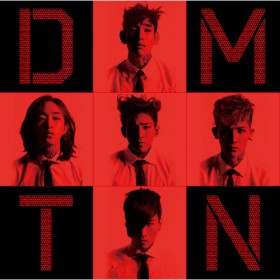 The promotions in K-pop usually follow the same algorithm. The debut or comeback is announced, being succeeded by a waiting period, used mostly for socializing (selcas, various pieces of news of questionable importance). Then, the teasing and trolling begin. It is just a matter of time before the song is finally out and the artists can go and perform live. However, accidents happen and things might not run as smoothly as planned.
The promotions in K-pop usually follow the same algorithm. The debut or comeback is announced, being succeeded by a waiting period, used mostly for socializing (selcas, various pieces of news of questionable importance). Then, the teasing and trolling begin. It is just a matter of time before the song is finally out and the artists can go and perform live. However, accidents happen and things might not run as smoothly as planned.
Leaking songs is by far a common occurrence. Cite ten consecutive comebacks and it’s very likely that one from the list is a victim of stolen and prematurely released material. Most recently, Dalmatian had a low quality version of the video put out a couple of days prior its official release.
The term refers to the situation where a person that has access to the expected information (in this case, song, video or album) chooses to disclose it earlier, taking advantage of his/her position. The suspected are often the journalists that receive a copy or people who are involved in the CD manufacturing or distribution. Sometimes, supposedly fans can make their way and obtain unseen material, hacking into staff members’ accounts and getting an older version of the song.
The most obvious downside would be the encouragement of illegal downloading, and is the main reason this is regarded as harmful for the artist and the company in question. The material is published beforehand, when no purchasable item is available. That’s what official comebacks represent: it gives the fan the opportunity to listen to their music and choose whether they do or do not want to pay the artists back for their efforts. Idols have a product on the market and — despite copyright infringement still being a problem — there is at least the “good” option. But for the gap of time between the unofficial and the official release, the merits of the artist can’t be rewarded, aggravating the already deep-rooted practice of internet piracy.

And it is not the only thing to keep in mind. After all, sales might be affected or not. But it is bothering for the person that’s being subjected to this. The offender doesn’t have the right to decide over another one’s work. Idols run on a tight schedule and their companies count on the planned dates for various reasons: competition, the management of different celebrities, activities or broadcast programming. Interfering with their already messed-up programs is not very helpful. The official date can change and the artist is forced to promote earlier. The calculated time to let the audiences build up their expectations or enjoy the song until live performances is already lost.
Besides, it is hardly justified by the profit. There is scarcely any financial gain from this. Why would anyone go to that extent? Maybe for the buzz, for the fans’ gratitude or just to prove what they can do.
These concerns apply in the case of the songs that were out without the producers’ consent. But it would also be naïve to assume they are not often involved in this. Companies are regularly seen exerting their control over artists and the media, and the big names are incredibly powerful in the industry. Suddenly transforming to helpless victims, thus, is less than believable. If the odds that staff members or hacker fans are responsible for this, the possibility for the entertainment companies to be involved is ten times higher. Infinite’s Inspirit album was leaked earlier this year; now, Infinitize appeared too on various unauthorized sites. Is Woolim Entertainment really that clueless?
There are disadvantages, as it was already mentioned. But they can be turned the other way around. Low quality versions of an album or video can be regarded also as teasers. The fan that enjoyed them will want to own the high quality version of the product. It is even more effective than the usual teasers and would be an explanation to why these pre-releases occur a few days or even hours before the official release. Boyfriend’s Don’t Touch My Girl hit the torrent sites only one day before the official date, when it was less than necessary.

Companies are skilled trolls and profit from the public’s mindset. A fan that has to wait will enjoy the leaked material all the more better. It leaves the impression that the person in question somehow cheated the ones that made him wait. Remember when around Christmas, you would search the house for your present? You knew you were going to receive the present sooner or later, but you preferred sooner. It was not about proving your finding skills. People, from the early stages, need to control their surroundings in order to feel safe. This is why someone waiting will feel as if there is a game of tug-of-war that is initiated by the ones to make him or her wait. Sellers are aware of this, K-pop being no different. They leave the consumer under the impression that he or she has achieved something. The customer won the game and has the undisclosed material.
And if illegal downloading was discussed earlier as an effect, it can be used in the companies’ favor. Leaks create the illusion of guiltless free downloads. Firstly, once it didn’t hit the stores, there’s no other option, so what can fans do? They are not responsible for the fraud. Somebody else did it and they are just innocent listeners. Secondly, it appears as a special offer. How many times do people buy a product only because there is an unnecessary item that comes with the package at a lower price? The advertising here is the same. Something that one should wait for comes off sooner. Even when the fan doesn’t have a thing for the respective idol, they will give it a listen because it was practically put out for them. It is a way to raise awareness to a particular artist. Jang Na-ra’s management declared that a mistake led to the early release of her single, I Only Think Of You. Then, they also stated this:
The responses prove Jang’s strong presence and huge popularity in China as a Hallyu star, who’s been active both in Korea and China.
Saying right after this affirmation that they are embarrassed for the accidental release is unneeded.

Furthermore, what this example proves is that leaked releases are a good popularity test. When the companies are unsure of their artists’ place on the K-pop scene, it can help them understand the audience’s response. Accordingly, Dalmatian’s pre-release might have been an effort to counterbalance the concurrence. Their fans aren’t as numerous as Infinite’s, who happens to be promoting at the same time. Bringing extra attention to the guys could ease their way — though it is unfortunate that Infinite pulled the same move. With rookies, it is the same. Countless teasers were released to announce Exo‘s debut. But before anyone knew the members, various information or media about them were released (accidentally, of course). It makes people determined to check their profiles and pay closer attention. A photo of Nine Muses‘ Erin was also released before being edited, just to showcase how supposedly beautiful and perfect she is without Photoshop.
Shameless at its core, this practice isn’t the only desperate strategy pulled by entertainment companies. Any advertising is good advertising. Depending on who pulls the strings and how, leaking songs can be both harmful and beneficial for the artist. It is still an on-going issue that probably won’t disappear anytime soon. So what do you think? What are your opinions on leaked material and its implications?
(Star News, Nate [1],[2], Naver, Woollim Entertainment, Monkey Funch Entertainment, YG Entertainment, Star Empire Entertainment)


